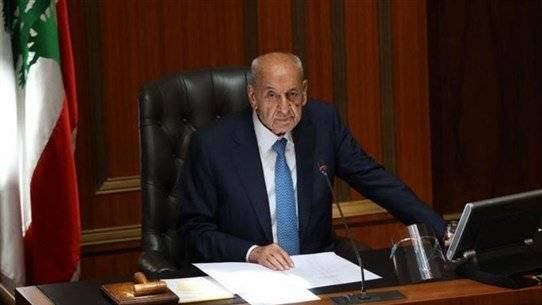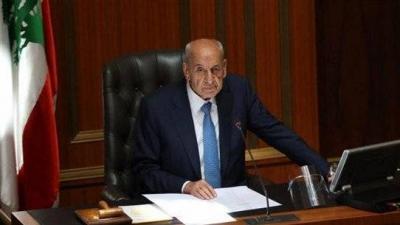The elections for the Speaker of the House of Representatives and his deputy, along with the executive board, unfolded against a backdrop of fierce battles before and during the session, and constitutional discussions regarding the voting process. Ultimately, Nabih Berri was elected as the Speaker of the House for a seventh term, while Elias Bou Saab secured the deputy chair position after a tough competition with MP Ghassan Skaf.
In numerical terms, both Berri and Bou Saab received 65 votes out of 128, which are modest numbers indicating that half of the council positions are held by opposition members. However, the biggest surprise was Skaf obtaining 60 votes in his first parliamentary term, suggesting that there isn't a real majority for the March 8 coalition and the Free Patriotic Movement. The voting process revealed a hidden agreement among members of the March 8 coalition, involving a vote exchange between the Free Patriotic Movement and the Amal Movement to secure the election of Berri and Bou Saab.
On the other side, the sovereign bloc appeared relatively fragmented despite holding the majority of parliament seats, as several independent MPs chose to refrain from supporting Skaf, resulting in his defeat in the competition. This disarray negatively impacts this bloc and the country, especially with Lebanon facing several important upcoming elections that will shape its new identity once power is reestablished.
Fadi Karam, a member of the "Strong Republic" bloc, noted that "the coalition left it to independent MPs to decide on a candidate for the deputy speaker position, with the coalition supporting that direction, leading to an agreement to nominate Ghassan Skaf." However, he revealed in an interview with "Anbaa" newspaper that "the coalition was surprised today by the fragmentation of the disconnected and misunderstood reformist group, which clearly indicated existing problems and disagreements within, negatively affecting Skaf's chances of being elected. As a result, this weakness extended the suffering of the Lebanese people through the extension of the ruling authority."
As numerous important tasks await the new parliamentary council, particularly the naming of a Prime Minister and election of a President, Karam emphasized that "new independent MPs must be realistic and understand the significance of the core issues that need to be prioritized, to move towards liberating Lebanon from the current authority." He concluded, noting that this group lacks a program and vision, but dialogue is ongoing to agree on broad policy objectives.
For her part, independent MP Najat Aoun Seliba denied that independent lawmakers are fragmented, stating they are "on the contrary, allied and in agreement, which was reflected in the blank paper during the election of the Speaker and the voting for Skaf as deputy."
In a conversation with "Anbaa," Seliba stressed that "independents are focused on programs rather than individuals, and they are trying to establish a new approach based on democratic elections within the parliament rather than pre-arranged coalitions outside its walls." Regarding Skaf's nomination, she indicated, "We reviewed his program, which was rational, and therefore chose to vote for him."
In any case, despite the initial sessions of the new council being disappointing, attention is now turning to the formation of the government and the timing of obligatory parliamentary consultations, which President Michel Aoun will be obliged to call for. Here lies the next challenge and the ability of this council to appoint a Prime Minister and grant it confidence to revive the country... This process has begun with the hope that it will not be a difficult one.




